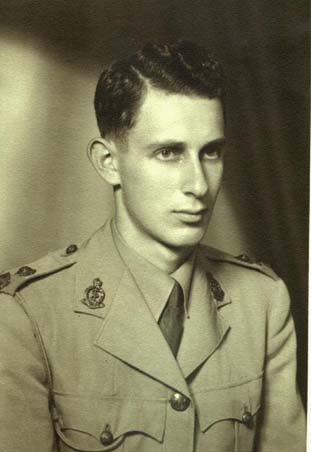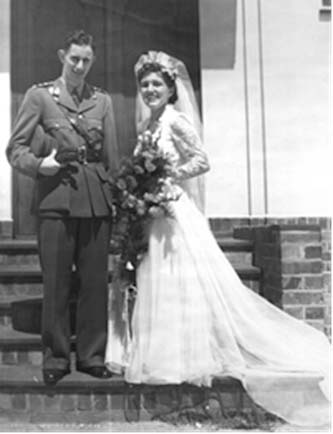As told by his son, Richard Mendelsohn

Leonard Mendelsohn was one of the longest serving Jewish general practitioners in the Northern Suburbs. He began practice in Goodwood in the late 1940s before moving to Parow c.1950 when he entered a partnership with Solly Freedberg. The move was a condition of the partnership. He remained in practice in Parow long after Solly left the partnership. He retired eventually in the late 1990s because of ill health.
Leonard was born in 1918 to an immigrant Jewish family living in Wynberg. He grew up in an apartment above the small family store in the Main Road and went to school at Wynberg Boy's High. Like so many of his first South African born generation, he was thoroughly English South African in orientation. Though his parents were Yiddish speaking, they spoke English to their children with the result that Leonard barely knew any Yiddish.
While still a schoolboy he developed his life-long passion for cricket and rugby, something he shared with his fellow Jewish GPs in the northern suburbs! (I remember sitting as a child in the grandstand at Newlands alongside my father, and his friends, Angel Mallach and Tollie Lewis.) Like most of his Northern Suburbs medical contemporaries, Leonard was a graduate of the University of Cape Town medical school, which saw an influx of Jewish students in the 1930s. The senior medical professors at the time were Scottish and as a consequence, UCT medical school was jocularly known as 'the Scottish mission to the Jews.'
Like many of his young Jewish contemporaries, Leonard volunteered for war service, but because of major health issues was restricted to service within South Africa. One of his postings as an army medical officer included the detention centre at Koffiefontein which held BJ Vorster among other future Afrikaner luminaries.
After the war he turned to general practice and like other ex-serviceman doctors refused to buy into practices run by doctors who had declined to serve but instead chose to 'squat', i.e. set up a new independent practice in a hitherto underserved area. This is presumably why there was such a clustering of young Jewish doctors in the Northern Suburbs which in the wake of the war, were expanding rapidly in consequence of both Afrikaner and Coloured urbanisation.
Leonard's practice I suspect was typical of the times. His surgery off Steenbras Street in Parow, adjacent to our family home, had two waiting rooms, one for Whites and one for non-Whites. This it would seem was what Parow custom and national law post 1948, required. One wonders how doctors of Leonard’s generation squared it with their conscience.
Leonard himself was a life-long liberal with Fabian leanings. A subscriber for many decades to the New Statesman, he admired the British NHS. He spoke with admiration of Chief Albert Luthuli whom he heard address a meeting in Cape Town, and supported the Progressive Party from its inception in 1959.
He was a devoted family doctor and treated all of his patients, irrespective of background, with equal respect and deep concern. He treasured the connection he had over generations with his patients.

Medicine and general practice gave meaning to his life, and for that reason he was very reluctant to retire. Medical practice in the 1950s and sixties differed markedly from today's. House calls took up a significant part of the day and these included trekking through the sandy wastes of Elsies River and Tiervlei carrying the old heavy medical case. Leonard shared night and weekend duties with his partner Solly and an assistant, and this often meant getting up at ungodly hours to visit a patient. Leonard took this for granted as part of his vocation.
Leonard was deeply embedded in the local Jewish community. He served for decades on the committee of the Parow shul and regularly attended on Friday nights. His religious practice though was typical of many of his generation: non-observant orthodoxy. He worked on Saturday mornings, and watched rugby at Newlands or played bowls at King David on Saturday afternoons. In the 1960s he accompanied his friend Georgie Groll (of Bellville) to Hartleyvale on Friday nights after supper to watch Cape Town City. Again I suspect like his Jewish contemporaries, his friends in the Northern Suburbs were predominantly Jewish: bridge parties on Sunday nights with the Mallachs and Lewis', bowls at King David on Wednesday afternoon and the weekends.
I will write separately about my mother Enid, who practiced as Dr Daitsh, her maiden name. Though she was not in general practice, she played a very important and pioneering role in the northern suburbs in bringing care and support to the intellectually challenged in the Coloured community.
